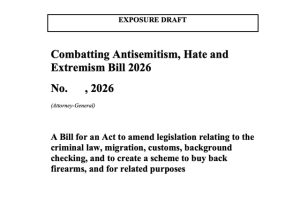State Senate: Republican majority
State House: Democratic majority
Governor: Josh Shapiro (D)
Attorney General: Michelle Henry (D)
Summary:
Known for its perpetual status as a ‘swing state’ in presidential elections, the Keystone State is one of the few in the nation with split party control of the legislature, with Republicans holding a 6-seat Senate majority and Democrats holding the House with a slim majority of two. As a result, legislation that passes on chamber often struggles in the other, with the exception of less controversial bills, such as those relating to child sexual abuse or limiting SLAPP lawsuits, the latter of which became law in June.
Key Policymakers:
- Rep. Ryan Bizzarro [D]
- Sen. Tracy Pennycuick [R] and Sen. Doug Mastriano [R]
Legislative Activity:
SR 212/ HR 317: A Resolution supporting an amendment to the Constitution of the United States to establish that election spending may be regulated to ensure that every resident may exercise the rights to free speech, political participation and meaningful representation, and to protect republican self-government and federalism. Introduced by Sen. Doug Mastriano [R] and Rep. Benjamin Waxman [D] in Nov. 2023. Passed the House with all Democrats and a few Republicans supporting on June 12, 2024. The Senate version has not progressed. HB 179: A public institution of higher education may not establish, maintain or otherwise implement a bias reporting system. Prohibition on punishment for protected speech. A public institution of higher education may not investigate, threaten disciplinary action or otherwise punish a campus community member for a protected expressive activity. Republican-only bill introduced by Rep. Joseph D’Orsie [R] in March 2023 but did not progress.
HB 1466 (Signed into Law): The General Assembly finds and declares that there has been a disturbing increase in lawsuits brought primarily to chill the valid exercise of the constitutional rights of freedom of speech and petition for the redress of grievances. The General Assembly also finds and declares that it is in the public interest to encourage continued participation in matters of public significance and that this participation should not be chilled through abuse of the judicial process. This bill therefore enacts the uniform public expression protection act, which would allow the filing of special motions for expedited relief concerning certain lawsuits the bill calls eligible causes of action. This would allow a stay for a review and determination to be made as to whether the lawsuit should be dismissed at an earlier point in the proceedings. The bill is based on a model uniform law drafted by the National Conference of Commissioners on Uniform State Laws, also known as the Uniform Law Commission (ULC). Bipartisan bill introduced by Rep. Ryan Bizzarro [D] in June 2023, passed both chambers unanimously and signed into law on July 17, 2024.
HB 2017/ SB 22: The legislation prohibits hateful conduct on social media platforms. The bill requires social media platforms to provide clear and easily accessible mechanisms for reporting incidents of hateful conduct and mechanisms for social media platforms to respond to the user. In addition,the bill requires each social media platform to have a clear and concise policy readily available, which includes how it will respond to and address reported incidents. It also prohibits minors under 16 from using social media without parental consent, and requires age verification. Introduced by Rep. Brian Munroe [D] and Sen. Vincent Hughes [D] passed the House largely along partisan lines on May 8, 2024.
SB 604 (2021): Stop Social Media Censorship Act. Creates private right of action, up to $75,000 in damages, and allows AG to enforce. Alleging hate speech is not allowed as a justification for censorship. The Secretary of State may also assess additional penalties if a candidate for public office is deplatformed or shadow banned. Republican-only bill introduced by Sen. Doug Mastriano [R] in May 2021 but did not advance.
SB 1217/ HB 2353: Bans use of AI depictions of candidates in political media within 90 days of an election unless disclosure is used. Creates civil penalties. Bipartisan bill introduced by Sen. Tracy Pennycuick [R] and Rep. Tarik Khan [D] in May 2024 and was voted favorably out of the House committee in June.
SB 1213: In sexual offenses, further providing for the offense of unlawful dissemination of intimate image; and, in minors, further providing for the offense of sexual abuse of children and for the offense of transmission of sexually explicit images by minor, including those artificially generated. Bipartisan bill introduced by Sen. Tracy Pennycuick [R] in May 2024 and passed the Senate unanimously in June.
HB 1598: A provision prohibiting the knowing or reckless creation, distribution, or publication of material produced using artificial intelligence without clear and conspicuous disclosure. Artificial intelligence is defined as a technology or tool that uses predictive algorithms to create new content including audio, code, images, text, simulations, or videos. The bill also includes language specifying that in criminal cases regarding child pornography or child sex abuse material, the fact that such material was generated using artificial intelligence may not be used as a defense. Introduced by Rep. Christopher Pielli [D] in August 2023, and passed the House with all Democrats and half Republican supporting in April 2024.
Legal Actions:
AG Henry Joins Lawsuit Against Meta for Endangering Kids’ Mental Health. On October 24, 2023 Attorney General Michelle Henry joined a multi-state coalition in a federal lawsuit against Meta Platforms, Inc. The lawsuit claims that the company’s social media platforms, including Facebook and Instagram, violate consumer protection laws by subjecting young users to a wave of harmful, manipulative, and addictive content. The lawsuit alleges that Meta knowingly designs and deploys features harmful to children on its platforms, while at the same time, falsely assuring the public that those features are suitable for children.
The federal complaint, joined by 33 states and filed in the U.S. District Court for the Northern District of California, alleges that Meta knew that young users, including those under 13, were active on its platforms and knowingly collected data from these users without parental consent. Federal law prohibits social media platforms from enrolling users under age 13. The suit further alleges that Meta uses platform algorithms to push users into constant interaction with the platforms in an effort to maximize profit. Features like infinite scroll and near-constant alerts at all hours of the day were created with the express goal of hooking young users. These manipulative tactics continually lure children and teens back onto the platform.
States joining the federal lawsuit are Arizona, California, Colorado, Connecticut, Delaware, Georgia, Hawaii, Illinois, Idaho, Indiana, Kansas, Kentucky, Louisiana, Maine, Maryland, Michigan, Minnesota, Missouri, Nebraska, New Jersey, New York, North Carolina, North Dakota, Ohio, Oregon, Pennsylvania, Rhode Island, South Carolina, South Dakota, Virginia, Washington, West Virginia, and Wisconsin. Florida is filing its own federal lawsuit in the U.S. District Court for the Middle District of Florida. Filing lawsuits in their own state courts are the District of Columbia, Massachusetts, Mississippi, New Hampshire, Oklahoma, Tennessee, Utah, and Vermont.








